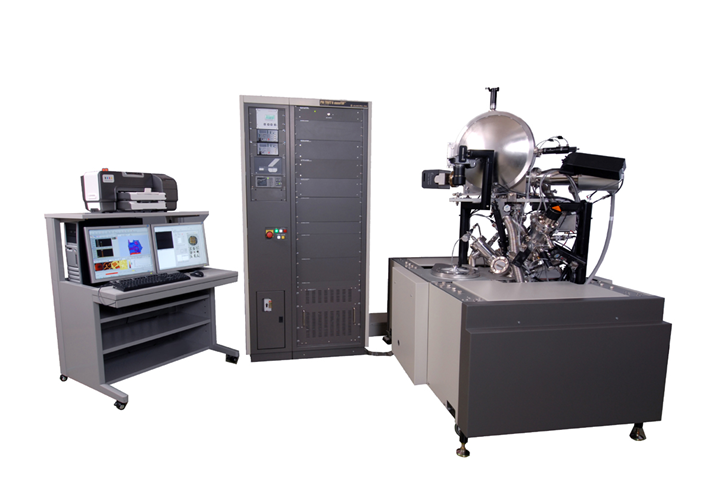Technical Parameters
Energy Resolution: FWHM of Ag3d5/2 peak < 0.48eV; FWHM of O=C-O peak in C1s spectrum < 0.82eV
Minimum x-ray Beam Spot Size: <10.0μm (x-axis); <10.0μm (y-axis)
Maximum Beam Current of Ar Ion Sputter Gun: >5.0μA @5kV
Differential Pressure of Ar Ion/C60 Ion Sputter Gun: < 6.7x10-6 Pa (5x10-8Torr)
Maximum Current of Ar Gas Cluster Ion Gun: >40nA @ 20kV
Minimum Beam Spot Size of Ar Gas Cluster Ion: 500 μm @ 20 kV
Thermal Performance of Sample Stage: -140°C to 800°C
Application Range
Inorganic compounds, alloys, polymers, energy batteries, surface defects (corrosion, foreign substances, contamination, uneven distribution, etc.), surface multilayer films, etc.

Detail

Detail